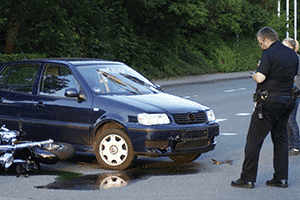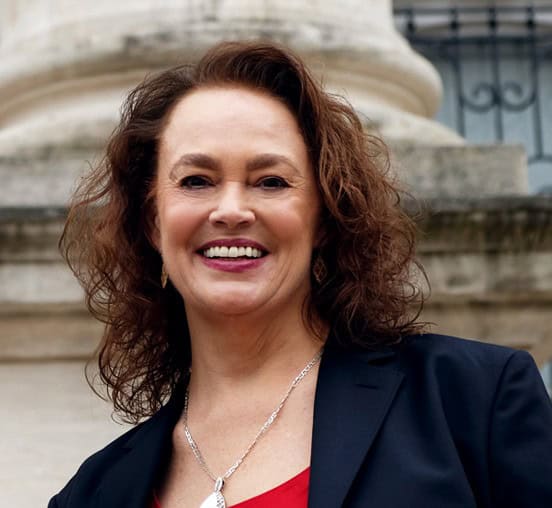After an accident, you may be wondering how police and the insurance company determines who is liable for the damages. Some accidents are straightforward, others are extremely complex, but most fall somewhere in between. In this article, we will discuss the many ways that fault can be attributed after a motor vehicle accident.
What’s In This Post:
- What Is an At-fault Accident?
- What Is a No-fault Accident?
- If You’re At-fault in a Car Accident
- How to Work with Your Insurance Company After an Accident
- Does Car Insurance Cover At-fault Accidents?
- How Do Insurance Companies Determine Fault in a Car Accident?
- Will Being At-fault Affect My Insurance Premiums?
How is Fault Determined in a Car Accident in Bowling Green?
The United States is constantly dealing with the road carnage that has claimed millions of people over the years. According to the National Highway Traffic Safety Authority, there were 6.7 million car accidents in 2019. But, who is at-fault for such accidents? Determining who caused an auto accident is a tricky process. Drivers, insurance companies, and police spend time in legal circles unearthing such complexities.
As a matter of practice, insurance companies determine who is at-fault based on state laws. Nevertheless, there are some basic principles that the Bowling Green car accident lawyers at Flora Templeton Stuart wants you to understand when involved in a car accident before seeking compensation.
What Is an At-fault Accident?
Different states have varying auto accident laws. Therefore, the definition of an accident and the responsible party varies from one state to another. All states have laws to determine who is at fault in a vehicle accident based on what a reasonable person would do under the circumstance and whether rules of the road have been violated. Examples of accidents caused by at-fault drivers include:
- Running a red light
- Driving while intoxicated
- Speeding
- Failure to yield right of way
What Is a No-fault Accident?
In a no-fault city like Bowling Green, this only means that your Personal Injury Protection (PIP) coverage will pay your medical expenses, cost of care, and lost wages up to $10,000, regardless of who was at fault. If the other driver caused the collision and you collect PIP on your own policy, the at-fault driver will pay back your company for the PIP paid to you. This is so you can get immediate treatment after a car, semi-truck, or other motor vehicle accident.
As a resident of Bowling Green, KY, it is critical for you to understand that the state uses a no-fault accident system. Therefore, a personal injury protection policy is vital. Also, the state has a ‘no-fault option,’ where drivers have a right to move out of the no-fault system. The no-fault option can complicate matters, which explains why you need to work with professional car accident attorneys to guide you in such situations.
If You’re At-fault in a Car Accident
 In case of an accident, your primary objective is to ensure that everyone is safe. It’s natural for people to start pointing fingers and losing their minds. Avoid blaming other parties. As a rule, you should not admit guilt. It’s your responsibility to report facts. Other vital duties you need to undertake are highlighted below.
In case of an accident, your primary objective is to ensure that everyone is safe. It’s natural for people to start pointing fingers and losing their minds. Avoid blaming other parties. As a rule, you should not admit guilt. It’s your responsibility to report facts. Other vital duties you need to undertake are highlighted below.
- Call the Local Authorities/Police
You don’t have to chase a fleeing vehicle or take an injured person to the emergency room. Call local authorities and inform them about any medical emergency at the scene. Wait for the police to arrive and report what happened without omissions.
- Contact Your Insurance Agency
Let your insurance provider know about the accident immediately. Insurance companies have professionals who can help you gather evidence at the scene. They are also critical in helping you to start the claim process.
How to Work with Your Insurance Company After an Accident
In case of an accident, it’s complex to keep things simple. The fact that you’re not at fault can even get you emotionally drained. However, even when you’re at fault, it’s critical to keep things in check and work with your insurance company.
- Report the Actual Facts
Admitting fault to the other driver’s insurance agent should never cross your mind. Focus on reporting facts. Your job is to give an account of what happened based on your perspective. There may be contributing factors where another party was also at fault, such as speeding.
- Provide Any Evidence Gathered
It is advisable to gather evidence from the scene. Taking pictures of the vehicle as-is can provide some insight to your insurance agents. Gather information from witnesses and record their contact details. Share all evidence with your insurance company. Other areas you can work with your insurance company include filing the claim and sharing police reports. Your insurance company will be on your side and if suit is filed against you where you are at fault, they will provide a lawyer to defend you.
Does Car Insurance Cover At-fault Accidents?
Making an at-fault auto accident insurance claim is not straightforward. You’re not guaranteed compensation. However, the type of insurance policy you’ve purchased and the state insurance laws determine your compensation levels.
- Personal Injury Protection (PIP) Coverage
Personal Injury Protection (PIP) insurance helps cover the expenses of those injured in motor vehicle accidents, regardless of fault. This means that even if you cause the collision, your PIP coverage will pay at least $10,000 per person, per vehicle for things like medical bills and lost wages. In Kentucky, PIP coverage (or no-fault insurance) is required on all vehicles except for motorcycles.
- Collision Insurance
In at-fault accidents, collision insurance can help you cover damages to your car. Such coverage applies whether you’re at-fault or not. Always clarify the benefits of buying collision insurance with your company to understand your claim boundary.
- Bodily Injury Liability Policy
Bodily injury liability insurance is the type of policy you will use if you are at fault. This insurance policy helps cover all the costs of injuries experienced by passengers in both vehicles and the driver of the other vehicle. This insurance policy goes beyond medical coverage and can also solve damages in lost wages, funeral costs, medical bills, and pain & suffering. If you are not at fault and are injured in an accident, the liability policy of the at-fault driver pays you.
- Uninsured Coverage
If the other driver caused the wreck (at-fault) and has no car insurance, you can collect on your own uninsured policy. In Kentucky, the insurance must provide this with your insurance if not waived.
- Underinsured Coverage
If the at-fault driver does not have enough insurance to pay your damages, you can collect on your Underinsured Motorist (UIM) policy once you exhaust their policy. This coverage is important and must be added to your policy. Attorney Flora Stuart recommends getting around $300,000-$500,000 in uninsured and underinsured coverage for your protection.
How Do Insurance Companies Determine Fault in a Car Accident?
Insurance companies have to determine fault in a car accident to continue their administrative processes. However, they may not have sufficient information to conclude their procedures of determining fault. They usually rely on other parties to get their acts together.
- Police Reports
Insurance agents will obtain the police reports about the accident. Police information carries much weight on their decisions. It is the only data considered objective to the accident.
- Witnesses
Witnesses also provide sufficient information to the insurance companies. That is why you need to record data from those who witnessed the accident and keep their contact details. At Flora Templeton Stuart Accident Injury Lawyers, we get recorded statements from all witnesses in a Bowling Green accident.
- Gathered Evidence
Any evidence collected from the scene is crucial to the insurance company. Although such organizations might consider your evidence, it is essential to highlight that they prefer analyzing the scene or collecting evidence from other insurance companies.
Will Being At-fault Affect My Insurance Premiums?
Insurance premiums can have severe impacts on your expenses. That is why you’re always working on a good driving record to lower such premiums in the future. In case of an at-fault accident, there is a possibility that your insurance premiums will increase.
However, insurance premiums don’t change automatically. Several factors have to be analyzed before making such decisions. Circumstances around the accident and your driving record will determine the next cause of action. In such a scenario, collaborating with your insurance agent might save you from rate changes.
Looking for a Car Accident Attorney in Bowling Green, KY?
At Flora Templeton Stuart, we understand the complexity involved in vehicle accident cases. That’s why we’re offering our services in legal representation in at-fault or no-fault accidents in Bowling Green, KY. We’ll help you get the compensation you deserve ranging from medical bills, lost wages, property damages, pain, and suffering, among others.
We’ve been in the personal injury industry for over 40 years, demonstrating our legal representation prowess. We work on a contingency basis, which means you’ll only pay legal fees if we’re successful. Visit Flora Templeton Stuart Accident Injury Lawyers at our Bowling Green, KY, office for a free consultation.

